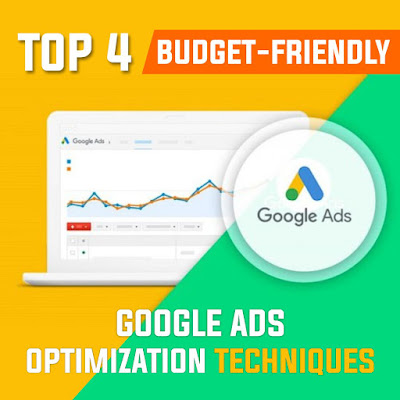Top 4 Budget-Friendly Google Ads Optimization Techniques
Hands down, people, we all know that as marketing and coronavirus pandemic trends come together, PPC is becoming essential for most Internet Marketing Companies’ marketing strategies. Unfortunately, at the same time, most of you are reducing your marketing budgets to lower than ever – until this pandemic is over. As a result, you need to rethink managing your Google Ads during the new standard period. So to help you out, Levitadz is sharing the top 4 budget-friendly Google Ads Optimization techniques with you.
Getting rid of vanity metrics
When you have reduced budgets
for PPC campaigns due to financial reasons, you have to make the most out of
every minute and rupees you invest. You must be this efficient to pass through
such a bad time and eventually get your budget back to normal. Overall you need
to be more focused on cost-effectiveness. Here’s what you need to do.
● You need to remove any data columns that you don’t use on a daily schedule or those that do not give you any value in your daily optimizations.
We all love to set up our
own data column sets with multiple data variations using which we want to
monitor and optimize our Ad campaigns. However, it has a drawback, as having
too much data can distract us from the essential data.
For example: You can remove columns like Search Imp. Share because you
cannot do anything about your competitors bidding higher than you on a fixed
budget. Instead, you can work on improving CTR.
Make an Impression to Conversion (ITC) column
After removing some
unnecessary columns, your next ad optimization step is to add some essential
columns to help you evaluate data quickly. This way, you can completely
optimize your SEO campaigns.
One such column is ITC, a
custom column that will make your optimization easier. The formula is ITC % =
conversions / impressions.
Add more exact keywords (and pause your phrase match)
Another strategy to
optimize your Google Ads performance on a low budget is adding more exact
keywords, which you should always aim to do with your paid search campaigns.
However, this technique needs more time on a reduced budget.
A tip here is to add
long-tail keywords or longer search terms as such words have these three
benefits.
● Long keywords have a low competition rate.
● Such words or terms allow you to bid lower amounts.
● Long-tail keywords enable you to write better and more precise online commercials.
Use in-market segments in Google Analytics
First, you need to link
your Google Ads account to your Google Analytics account if you haven’t
already. The next step is to go to your Google Analytics account, and under the
audience tab, you will find in-market segments, where Google has segmented your
site’s users as per the market preferences. Pretty useful, isn’t it?
We hope you learned
valuable information from this blog post. If you want the best Digital
Marketing Solution for
your organization, please contact our Lead Generation expert.




Comments
Post a Comment